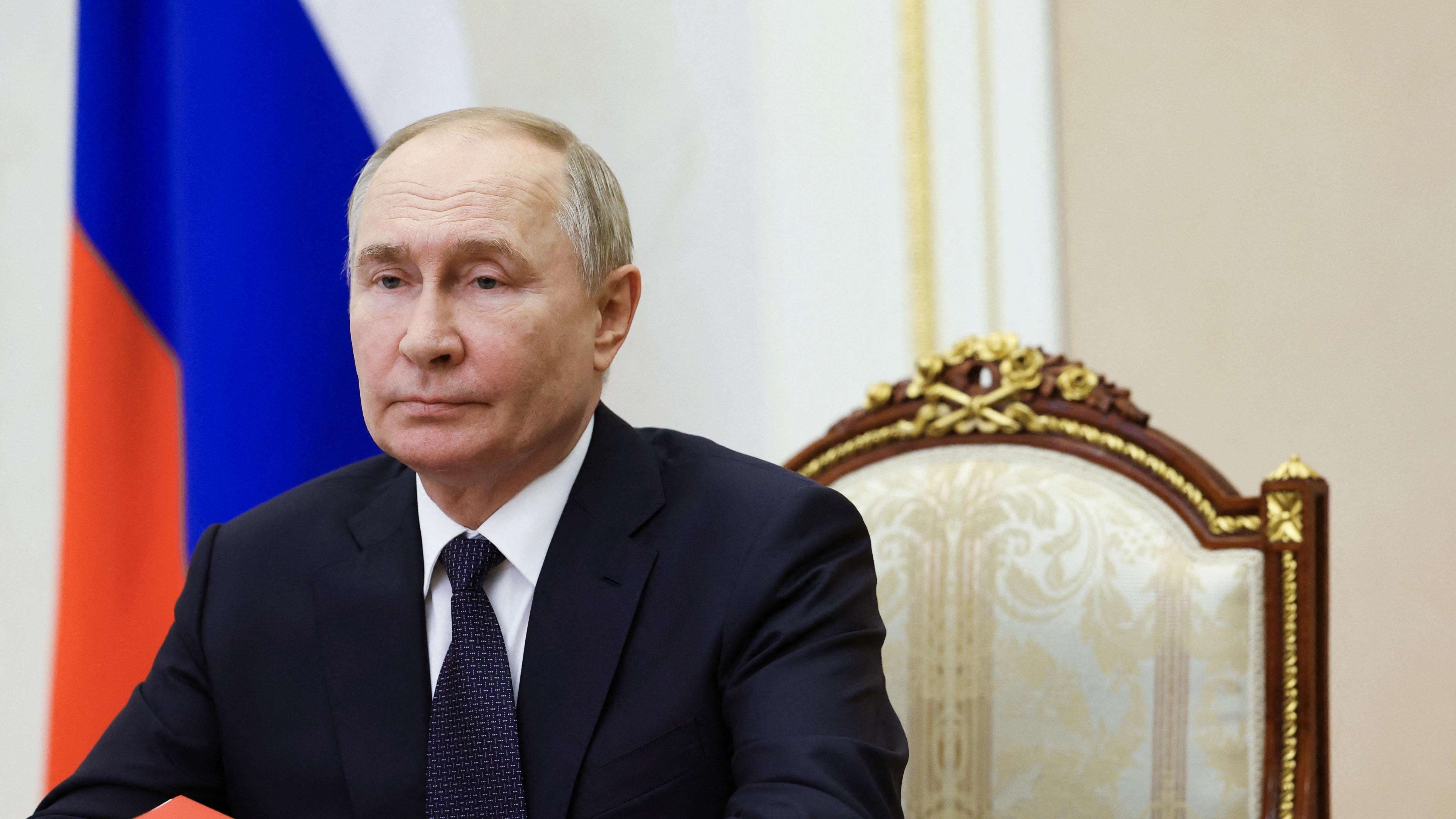Attacks on Russia: how will Putin react?
Washington lifts ban on use of US weapons against some military targets inside Russia

A free daily email with the biggest news stories of the day – and the best features from TheWeek.com
You are now subscribed
Your newsletter sign-up was successful
Better late than never, said The Daily Telegraph. For weeks, President Zelenskyy has been begging Washington to allow Ukrainian forces to use US-supplied missiles against targets inside Russia.
The ban on doing so had left Ukraine's second city, Kharkiv, exposed to a cross-border bombardment and led to "the patently absurd scenario that Moscow's forces could gather, unmolested, as little as four kilometres from the targets in Ukraine they were about to attack en masse". Last week, under pressure from European allies, President Biden relented, permitting Kyiv to use US weapons against military targets inside Russia – but only in areas bordering the Kharkiv region. Elsewhere, their use will still be limited to Ukrainian territory.
'Some immediate relief'
The easing of restrictions will be of "significant tactical benefit" to Ukraine, said Matthew Savill on Rusi.org. Its forces have been hitting targets in Russia throughout the war, but these have taken the form of risky sabotage operations or long-range drone attacks. As Ukraine's drones are slow and have a limited payload, such attacks rely on sheer numbers to beat defences and are often of limited effectiveness. Kyiv needed firepower it could "bring to bear rapidly and with little warning". It now has that (and has already used it to strike targets in Russia). This will complicate matters for Russia and provide "some immediate relief to Ukrainian forces", but it won't, in itself, transform Kyiv's position.
'A symmetrical response'
Biden's move was prompted by concerns that Ukraine is "gradually losing the war", said Gideon Rachman in the Financial Times. It also reflects the fact that the US and its allies are less worried than they used to be about President Putin's nuclear sabre-rattling, now that they've called his bluff so many times already in Ukraine. But some Western officials remain uneasy about the idea of Western-supplied weapons striking Russian territory. They fear it could lead Moscow to "make what it regards as a symmetrical response – involving counterstrikes on Nato territory".
The Week
Escape your echo chamber. Get the facts behind the news, plus analysis from multiple perspectives.

Sign up for The Week's Free Newsletters
From our morning news briefing to a weekly Good News Newsletter, get the best of The Week delivered directly to your inbox.
From our morning news briefing to a weekly Good News Newsletter, get the best of The Week delivered directly to your inbox.
Caution is warranted in this situation, said The Washington Post. The Biden administration is right to impose strict conditions on how its weapons are used. It wouldn't want them to be deployed in ill-advised attacks, such as Ukraine's recent drone strike on Russian early-warning radars that help safeguard against a mistaken nuclear launch. On the other hand, giving Kyiv the means to stop Russia raining bombs on civilians in Ukrainian cities seems fully justified. Kyiv should be given "leeway" to use the weapons in other areas, within the same constraints. It's a calculated risk well worth taking to help Ukraine defeat an egregious act of cross-border aggression.
A free daily email with the biggest news stories of the day – and the best features from TheWeek.com
-
 Political cartoons for February 14
Political cartoons for February 14Cartoons Saturday's political cartoons include a Valentine's grift, Hillary on the hook, and more
-
 Tourangelle-style pork with prunes recipe
Tourangelle-style pork with prunes recipeThe Week Recommends This traditional, rustic dish is a French classic
-
 The Epstein files: glimpses of a deeply disturbing world
The Epstein files: glimpses of a deeply disturbing worldIn the Spotlight Trove of released documents paint a picture of depravity and privilege in which men hold the cards, and women are powerless or peripheral
-
 ‘The mark’s significance is psychological, if that’
‘The mark’s significance is psychological, if that’Instant Opinion Opinion, comment and editorials of the day
-
 Democrats push for ICE accountability
Democrats push for ICE accountabilityFeature U.S. citizens shot and violently detained by immigration agents testify at Capitol Hill hearing
-
 Fulton County: A dress rehearsal for election theft?
Fulton County: A dress rehearsal for election theft?Feature Director of National Intelligence Tulsi Gabbard is Trump's de facto ‘voter fraud’ czar
-
 ‘Melania’: A film about nothing
‘Melania’: A film about nothingFeature Not telling all
-
 Vietnam’s ‘balancing act’ with the US, China and Europe
Vietnam’s ‘balancing act’ with the US, China and EuropeIn the Spotlight Despite decades of ‘steadily improving relations’, Hanoi is still ‘deeply suspicious’ of the US as it tries to ‘diversify’ its options
-
 Greenland: The lasting damage of Trump’s tantrum
Greenland: The lasting damage of Trump’s tantrumFeature His desire for Greenland has seemingly faded away
-
 Minneapolis: The power of a boy’s photo
Minneapolis: The power of a boy’s photoFeature An image of Liam Conejo Ramos being detained lit up social media
-
 The price of forgiveness
The price of forgivenessFeature Trump’s unprecedented use of pardons has turned clemency into a big business.